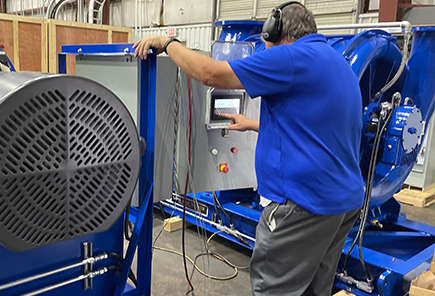Posted on April 4, 2024
From Concept to Completion: The Evolution of Control Systems Engineering Solutions

Control systems engineering is a critical field that has evolved significantly over the years. From the conceptualization of ideas to the completion of complex projects, the evolution of control systems engineering solutions has been driven by technological advancements, innovations, and the growing demand for efficient and automated systems. In this article, we will explore the journey of control systems engineering solutions from their early beginnings to the advanced technologies and methodologies that are shaping the future of this field.
The Early Days of Control Systems Engineering
Control systems engineering has its roots in the industrial revolution, where early systems were developed to automate mechanical processes in manufacturing and production. The early days of control systems engineering were characterized by simple mechanical and pneumatic systems that relied on feedback mechanisms to regulate and control the operation of machines.
Key developments in the early days of control systems engineering include:
- Development of the first feedback control systems
- Introduction of pneumatic and hydraulic control systems
- Advancements in instrumentation and control devices
The Rise of Digital Control Systems
With the advent of digital technology and computing, control systems engineering entered a new era of innovation and advancement. Digital control systems revolutionized the field by introducing precision, reliability, and flexibility in the design and operation of control systems. The integration of computers and software in control systems engineering led to the development of sophisticated control algorithms and strategies that could optimize system performance and efficiency.
Key developments in the rise of digital control systems include:
- Introduction of programmable logic controllers (PLCs)
- Development of supervisory control and data acquisition (SCADA) systems
- Advancements in control algorithms and simulation tools
The Era of Integrated Control Systems
As industries and processes became more complex and interconnected, the demand for integrated control systems that could coordinate and manage multiple processes simultaneously grew. Integrated control systems bring together various control systems, sensors, actuators, and communication networks to create a cohesive and efficient control infrastructure. These systems enable seamless communication, data sharing, and coordination between different components of a control system.
Key developments in the era of integrated control systems include:
- Integration of control systems with enterprise resource planning (ERP) systems
- Deployment of distributed control systems (DCS) for process industries
- Implementation of internet of things (IoT) technology for real-time monitoring and control
The Future of Control Systems Engineering
Looking ahead, the future of control systems engineering is shaped by emerging technologies such as artificial intelligence, machine learning, and advanced data analytics. These technologies are driving the development of smart and autonomous control systems that can learn, adapt, and optimize their performance based on real-time data and feedback. The future of control systems engineering is focused on creating intelligent systems that can anticipate and respond to changing conditions and requirements in a dynamic environment.
Key trends shaping the future of control systems engineering include:
- Integration of artificial intelligence and machine learning in control systems
- Adoption of predictive maintenance and condition monitoring technologies
- Development of cyber-physical systems for seamless integration of physical and digital components
Conclusion
The evolution of control systems engineering solutions has been a journey of innovation, transformation, and technological advancement. From the early days of simple mechanical systems to the advanced digital and integrated control systems of today, the field has continuously evolved to meet the growing demands of modern industries and processes. As we look towards the future, the next phase of control systems engineering will be defined by intelligent, autonomous systems that can adapt and optimize their performance in real-time. The future of control systems engineering is indeed exciting, and it promises to revolutionize the way we control and manage processes in the years to come.
